Third World War | Interview | Terry Stamp
Terry Stamp and Third World War made their mark with fierce music that resonated with a generation of hungry freaks for change. Decades later, Stamp’s solo recordings are receiving a long-awaited revival through Just Add Water Records, including his previously overlooked album ‘Blue Redondo.’
Recorded during 1977-1978 in California, ‘Blue Redondo’ showcases a new chapter in Stamp’s musical odyssey. Originally shelved by his label, the album remained in obscurity until the early 2000s when Stamp independently released it on CD. Now, the tracks have been rediscovered and pressed onto vinyl for the first time, offering a unique glimpse into Stamp’s creative evolution.
This revival of ‘Blue Redondo’ pairs seamlessly with Stamp’s home demos collection ‘Twenty Rough Rotters,’ painting a vivid picture of an artist unafraid to challenge conventions and speak his truth through the universal language of music. Through two albums, Third World War delivered a potent blend of heavy rock mixed with blues and messages of change that resonated with listeners hungry for something real.
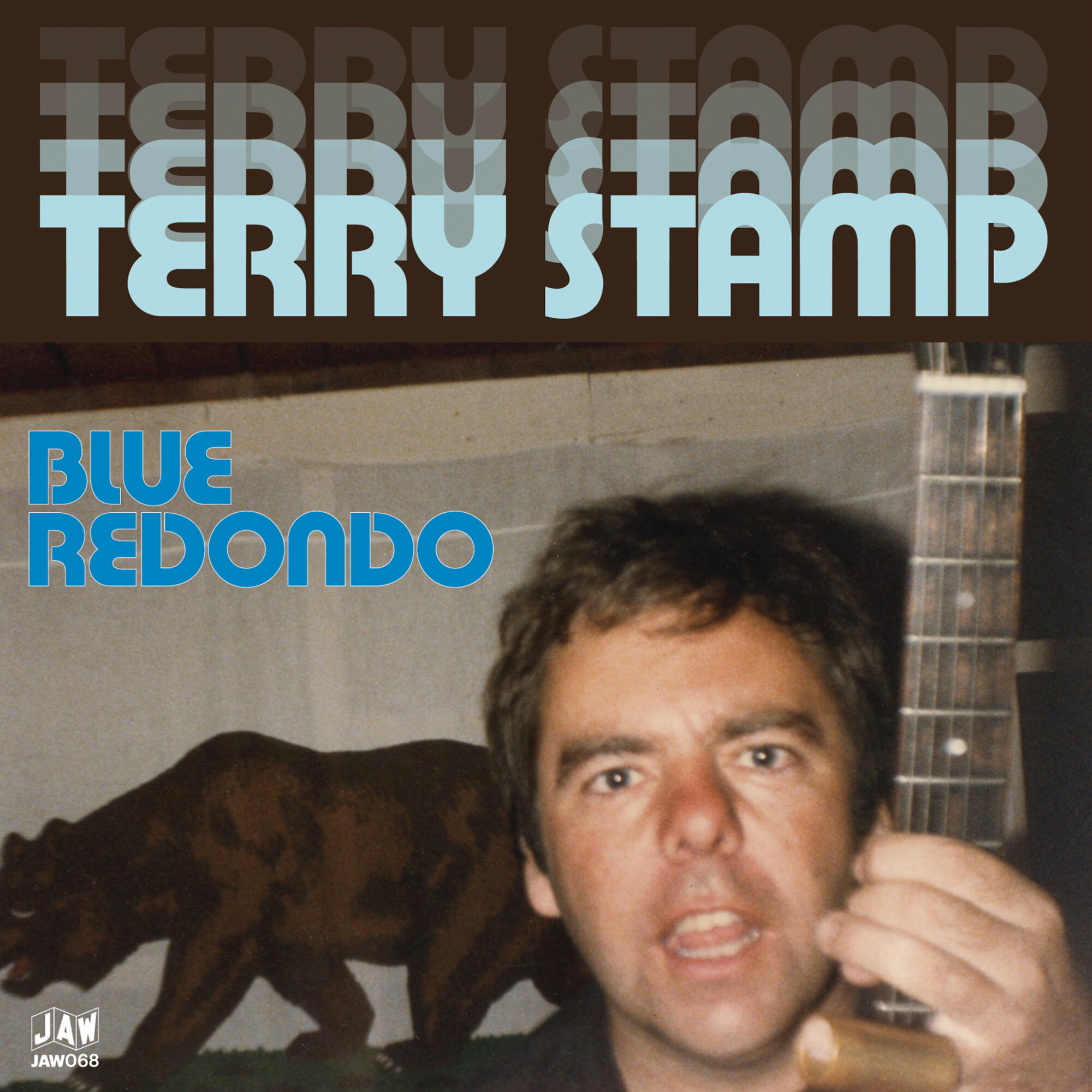
“Focused on writing songs while time and money were still burning”
It’s really wonderful to have you here. How do you feel about the fact that we are talking about the Third World War many decades later? You had something really special going on.
Terry Stamp: The two Third World War albums have remained popular with collectors, and there have been many reissues since their original release in 1971 and 1972. It wasn’t until the advent of the internet that I realized the albums had been released in Europe in the early seventies. No one ever informed me at the time; I only knew about the UK releases. That was the music business for you.
And sadly the title of your band is even more relevant today than it was back in the 60s…
The Third World War band/album name was actually suggested by the producer, John Fenton.
Was there a specific moment in your youth when you knew that this was it, and that you wanted to become a musician?
Growing up, I enjoyed most late fifties music genres such as pop, R&B, blues, and rockabilly. There was a boy at my school who had a guitar and would teach me a few chords here and there. He was really into Duane Eddy and playing instrumentals. I eventually purchased a cheap Hofner F-Hole guitar and learned a few basic chords. Later on, I got myself a Burns bass guitar and found myself getting involved in the local music scene at that time. I quickly realized I was not cut out to be a musician when I found myself around “real” musicians.
Would you like to discuss your upbringing? Can you describe the local music scene? Who were some of your most significant early influences?
Local gigs were sporadic, usually held at receptions and Town Hall Dances. Some of my early influences were Lonnie Donegan, early Cliff Richard, Johnny Kidd, Elvis, Buddy Holly, Eddie Cochran, Chuck Berry, Bo Diddley, Fats Domino, and more.
Were you in any bands in the late 60s/early 70s? Did you record anything or are there possibly some unreleased recordings out there?
I sang and played bass guitar in the Mike Rabin Band at The Wimbledon Palais from 1963 through 1966, performing every Friday, Saturday, and Sunday night. Starting in 1967, I began writing songs for music publishers, which eventually led me to record albums for Third World War and ‘Fatsticks’. While the ‘Blue Redondo’ album was released in January 2024 and includes most of my 70s songs, there may still be some outtakes and forgotten tracks floating around.
Was Mike Rabin & The Demons your very first band?
No, I had been part of local groups before that, playing both guitar and bass guitar. I also noticed that there was a shortage of bass players as everyone wanted to play guitar. Therefore, I auditioned for Mike Rabin on bass and secured the position in his band, mainly because I was the only bass player who showed up for the audition, hoho. Mike Rabin also played a significant role in my singing journey, especially when Stax records became popular, as he would have me sing songs like ‘Midnight Hour’ and ‘Mister Pitiful’.
How did you originally meet Mike Rabin?
Through a bass player wanted advertisement that Mike had placed in the UK musical paper “Melody Maker”.
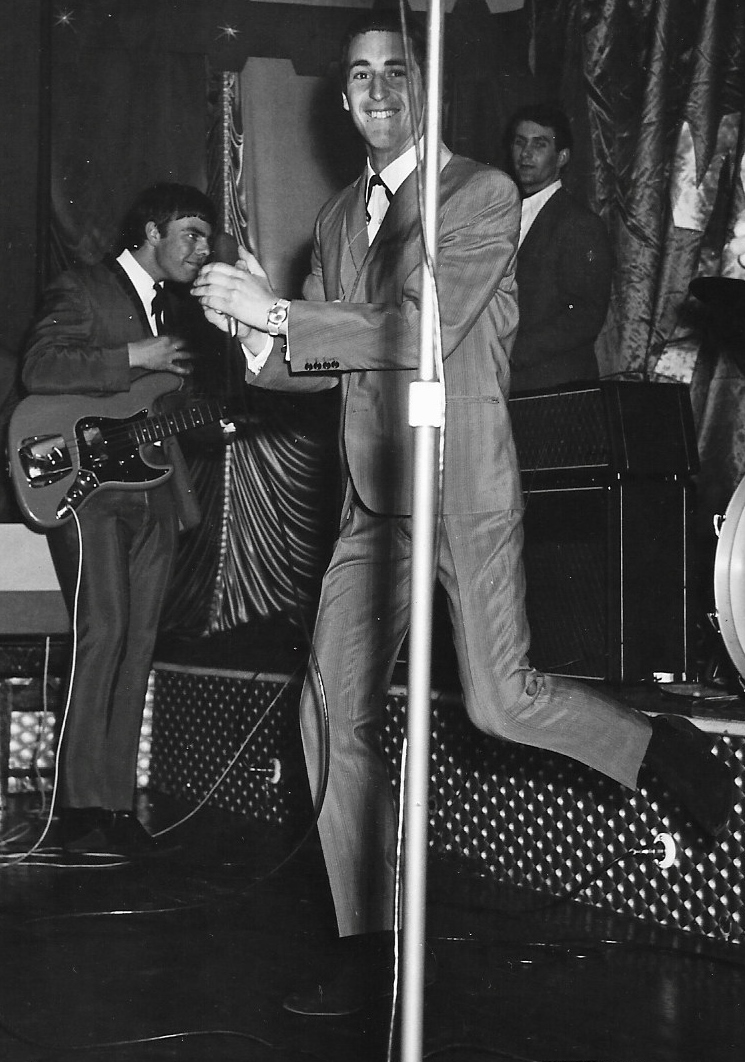
The band formed in the very early part of the 60s. By 1964 you released ‘Head Over Heels’ b/w ‘I’m Leaving You’. How did that come about?
I do not know the business side of all that, though Mike’s family was in the music business. I recall we demoed those two songs that Mike had written at a demo studio in Putney, UK. Next thing we knew, we were re-recording those two songs at Abbey Road. Both songs were cut in a 30-minute recording slot there. When we arrived at Abbey Road Studio to re-record the two songs, we found out that entry into the actual studio was not allowed until the top of the hour. So, we brought in our equipment and waited outside in the hallway. Our drummer set up his drum kit there to save using the studio time for him to set his drums up. When the studio door opened, we hurriedly took our equipment in, set up, and pulled off the two recordings in the first take of each song. On our way out of the studio, we were told to hurry up and leave, as an orchestra was waiting to come into the studio. We were told that “time and money were burning.” That would be something I would remember for future recordings, some years later. The lineup was Mike Rabin, songwriter and lead vocalist, myself on bass, Brian Brind on guitar/backing vocal, and Mike Palmer on drums.
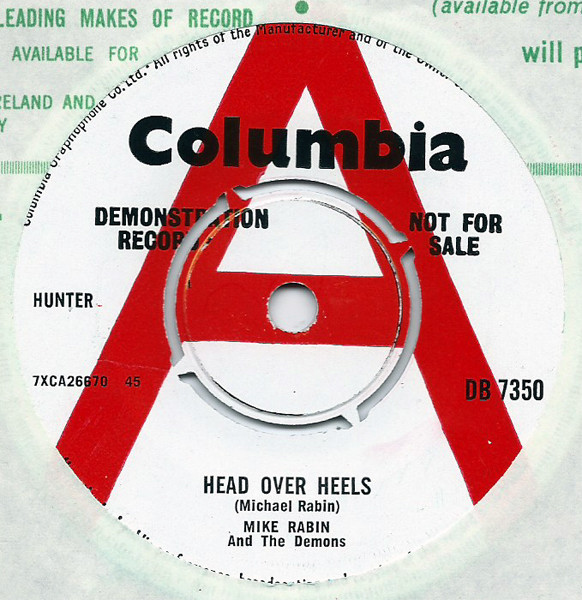
What about ‘What Do You Do’ b/w ‘If I Were You’? Where did you record it?
It was recorded at R.G. Jones Studio in Morden, UK in 1965. I do not recall too much about that recording. The lineup was Mike Rabin as the writer and lead vocalist, myself on bass, Ian Dibbon on guitar, Mike Palmer on drums, and Pete Heathersay on keyboards.
Did you do a lot of gigs as The Demons? What did your repertoire consist of? What are some memorable gigs you did?
The band name changed a few times; first to “The Demons,” then to “Mike Rabin and the Demons,” and finally to “Mike Rabin and His Music.” We played a few gigs around West London in 1962 as The Demons, then we got an audition for a weekend residency spot at The Wimbledon Palais, which we won. We played there from 1963 through 1966, with occasional South Coast hotel dance gigs. All the gigs were memorable for me. There were the headliner bands I liked to watch and note how they performed, the guitars and amps they used, and the songs they performed, among other things. First, there were the Merseyside bands, then the London bands, and then American recording artists like Jerry Lee Lewis, Gene Vincent, Bo Diddley, and others.
The Demons’ repertoire consisted of American R&B covers, including songs by Chuck Berry, Bo Diddley, Howlin’ Wolf, and Muddy Waters. We gradually moved into playing the pop chart hits of the day. By 1965/6, The Rabin Band consisted of Mike Rabin on lead vocals and tenor sax, myself on bass guitar and lead vocals, Mike Palmer on drums, Ian Dibbon on guitar and vocal, Pete Heathersay on keyboard Hammond Organ, Stan Sulzmann on tenor and alto sax, and also “Dave,” a baritone sax player whose last name I cannot recall. From June 1966 to December 1966, we backed Anita Harris at The London Palladium in a variety show called “London Laughs,” performing two shows weekly and three shows on Saturdays, without Stan Sulzmann and Dave. In 1967, the Wimbledon Palais closed.
Were you a member of any other bands before eventually forming Third World War, and when was this?
Yes, when the Wimbledon Palais closed, I played with a local folk Jug Band. I cannot remember their name. I played banjo and sang backing vocals mainly in local pubs.
I also started demoing my songs, such as ‘Tobacco Ash Sunday,’ among others. They were picked up by Schroeder Music Publishing in London, with their head office in New York. Aaron Schroeder was a songwriter who had written hits for Elvis Presley.
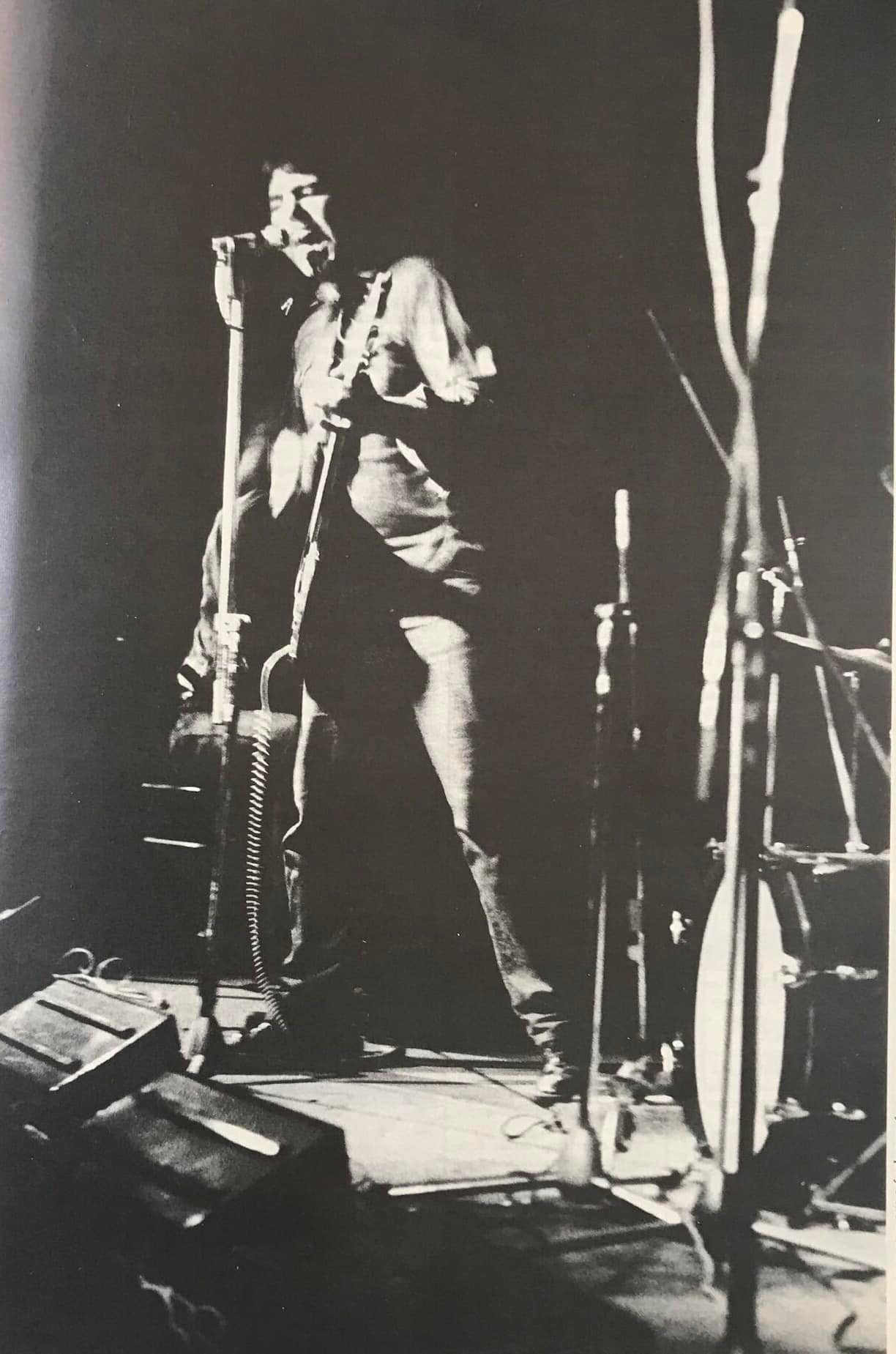
Can you elaborate on how Third World War got together, how you originally met the other members of the band, and what the overall vision of the band was?
The idea for Third World War originated from John Fenton, who was the office manager at the London office of Schroeder Music Publishing mentioned earlier. He teamed me up with Jim Avery, a bass player and songwriter, and instructed us to write songs that were different. Together, we wrote songs and recorded them onto a Revox Tape Recorder at Fenton’s flat. Fenton then took those demos to Fly Records. With his connections in the UK music industry and previous work for Beatles merchandising in New York City, Fenton played a crucial role in the formation of the band. Jim Avery, on the other hand, knew musicians in the West London live and recording scene, such as Mick Liber on lead guitar and Fred Smith on drums. With myself on vocals and guitar and Jim Avery on bass, the band was formed for recording purposes.
Initially, we did not have a specific vision for the band. We were four individuals who did not know each other well, but we collaborated on recording the first Third World War album tracks. Our focus was on the music itself, ensuring the songs were original and well-crafted. During the recording process, we maintained a professional approach, aiming for no mistakes and delivering strong performances. The recordings were done efficiently, with all tracks being first takes. I do not recall facing any significant difficulties during the recording sessions.
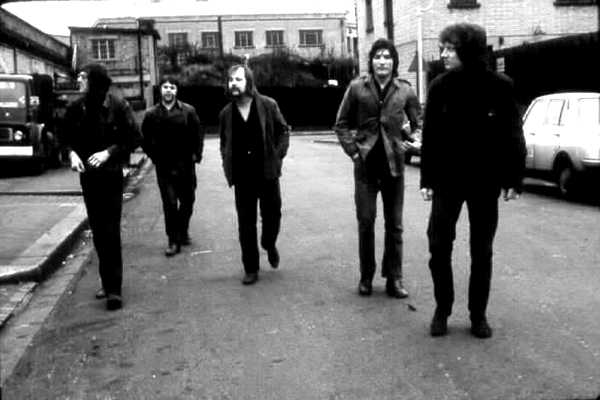
How did you get signed by Fly Records, and what did the contract include?
John Fenton handled all the business matters, and I believe he had a good relationship with Denny Cordell, who was associated with Essex Music/ Fly Records and is now known as the Bucks Music Group.
During that period, I was already under contract with Schroeder Music Publishing for songwriting.
What’s the story behind your debut album? Where did you record it? What kind of equipment did you use and who was the producer? How many hours did you spend in the studio?
John Fenton served as the producer while the engineer was Phil Brown. We recorded the basic tracks and vocals at Island Studios in Notting Hill, London, over a couple of evenings. For the song ‘Stardom Road Part I,’ the arranger, Nick Harrison, assembled a group of veteran musicians from the Musicians Union, along with a classical guitarist he knew who had recently returned to the UK after studying in Spain. Jim Avery played the acoustic guitar, and he is the one who starts the song.
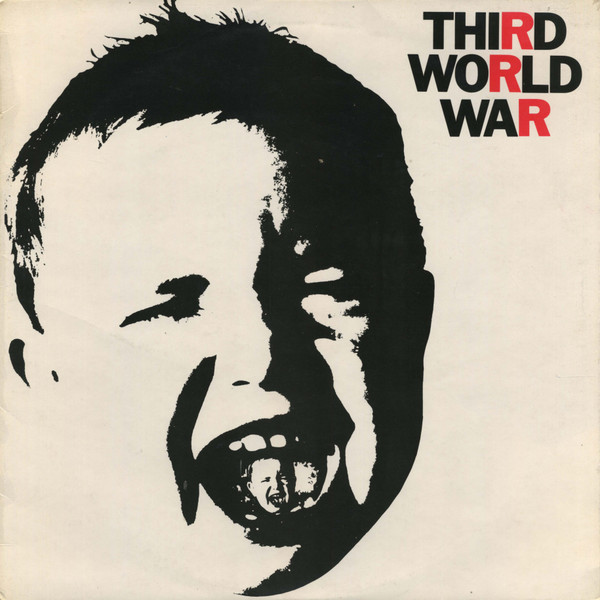
I used my Hagstrom 12 guitar through a Vox AC30 and an acoustic guitar for the two vocals and acoustic guitar tracks. I believe Jim Avery’s bass was connected directly into the recording console; I do not recall him using a bass amp. Mick Liber played a white Gibson SG with three gold pickups, running it through a Vox AC30, a homemade fuzz box, and then through a Leslie Organ Speaker Cabinet. As for Fred Smith’s drums, I cannot remember the specific make he used.
During this time, I focused on songwriting and would visit Fenton’s London flat in the mornings a few times a week. Jim Avery also resided there, and we would collaborate on new songs and record demos. At that time, I lived outside of London, near Heathrow Airport.
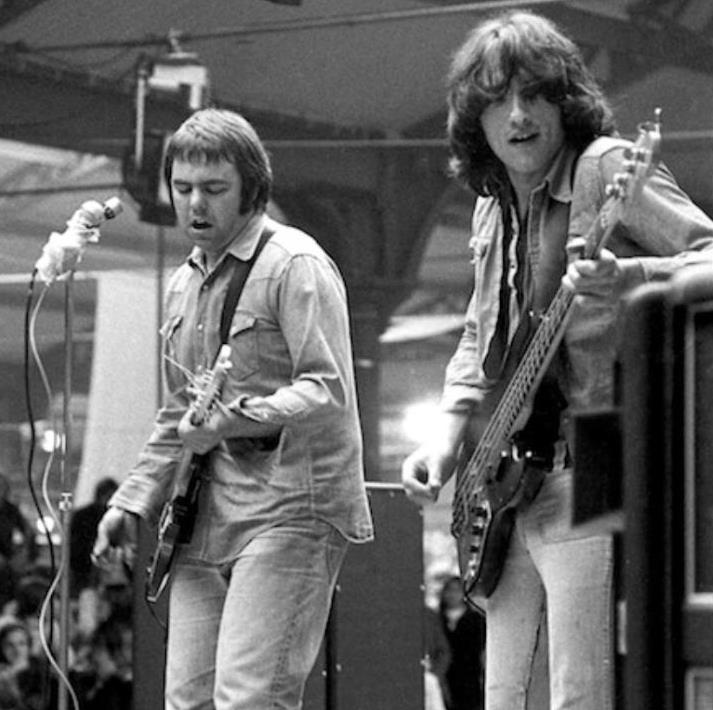
“We simply cranked out the music”
Please share your recollections of the sessions. What were the influences and inspirations for the songs recorded?
During the studio sessions, we would run through the songs and then record them. There were no specific influences, visions, or inspirations guiding us; we simply cranked out the music. I hadn’t forgotten the Abbey Road experience, where “time and money were burning.”
Who created the cover artwork?
For the first album, the cover artwork was done by a friend of John Fenton. As for the second album, an artist living in Italy was responsible for the artwork. Additional information can be found on the album record jackets.
Was there a certain concept behind the album?
No, however it turned out, that was it.
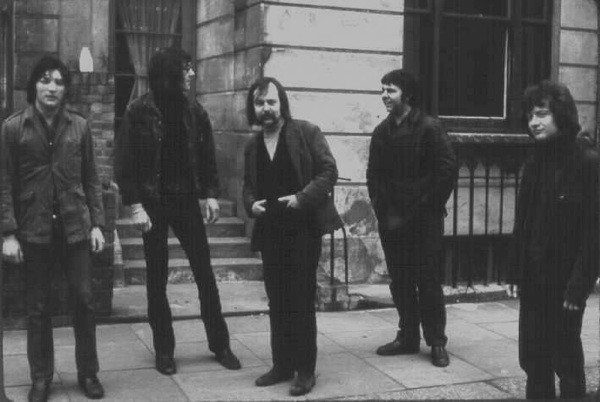
How pleased was the band with the sound of the album? What, if anything, would they have liked to have been different about the finished product?
I do not know, as I did not go into the studio control room to listen to the recorded tracks. I always had other unrecorded tracks to work on.
After the recording was completed, Mick Liber and Fred Smith went their separate ways. They were both involved in other bands; Liber was with Tony Ashton, and Smith was in the backing band for The Three Degrees.
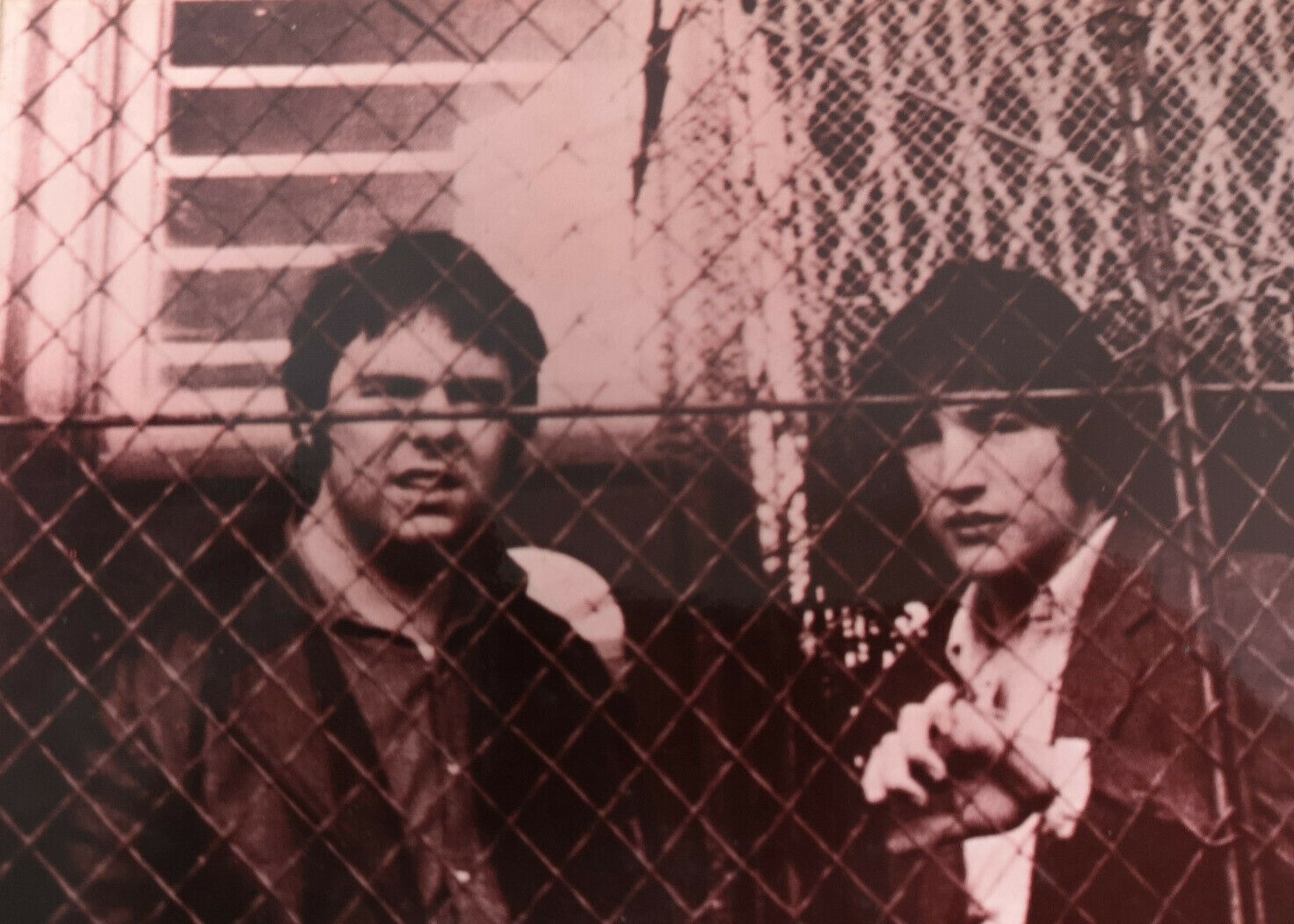
Did the band tour to support the LP?
We toured Finland, did a week in a Hanover club, played the Paris Olympia. In the UK, we played various clubs and music venues, such as The Roundhouse and The Marquee.
In Finland, we played a live 30-minute Third World War set for Finnish TV in Helsinki. It was broadcast two weeks after we left Finland and returned to the UK.
What are some of the venues Third World War played at and which bands did you share stages with?
Third World War played at venues such as the Paris Olympia with Arthur Brown, and at the Lyceum in the UK with Redbone and Mountain.
And what would be the craziest story that happened to the band?
One of the craziest moments was arriving from the UK in a storm to a rain-washed-out music festival in France.
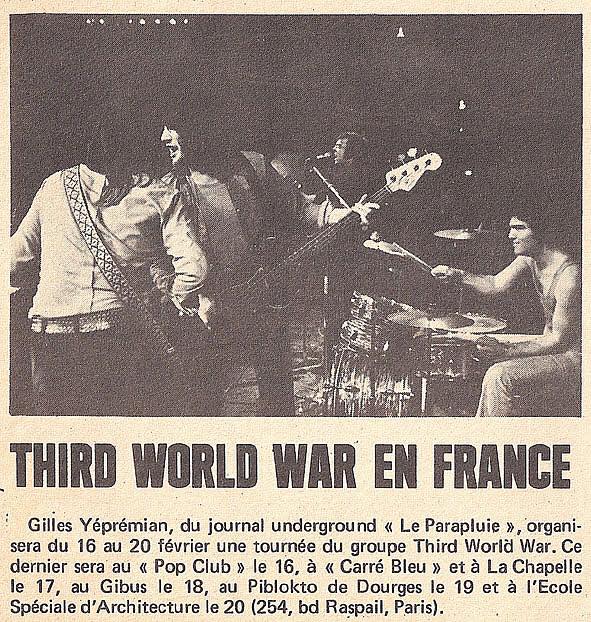
Did your band also experiment with psychoactive substances back then?
No, we did not. I was focused on writing songs, while time and money were still burning.
One band that always reminds me of your sound is Stack Waddy, were you familiar with them?
No, I will check them out.
What led to Track Record and the release of your second album?
Once again, John Fenton handled the business side, but I heard that Pete Townsend was a Third World War fan and had influence at Track Records, leading to the release of ‘Third World War II’ on their label.
Interestingly, some years prior, when The Who performed at The Wimbledon Palais, I was playing in the resident band with Mike Rabin, supporting them.
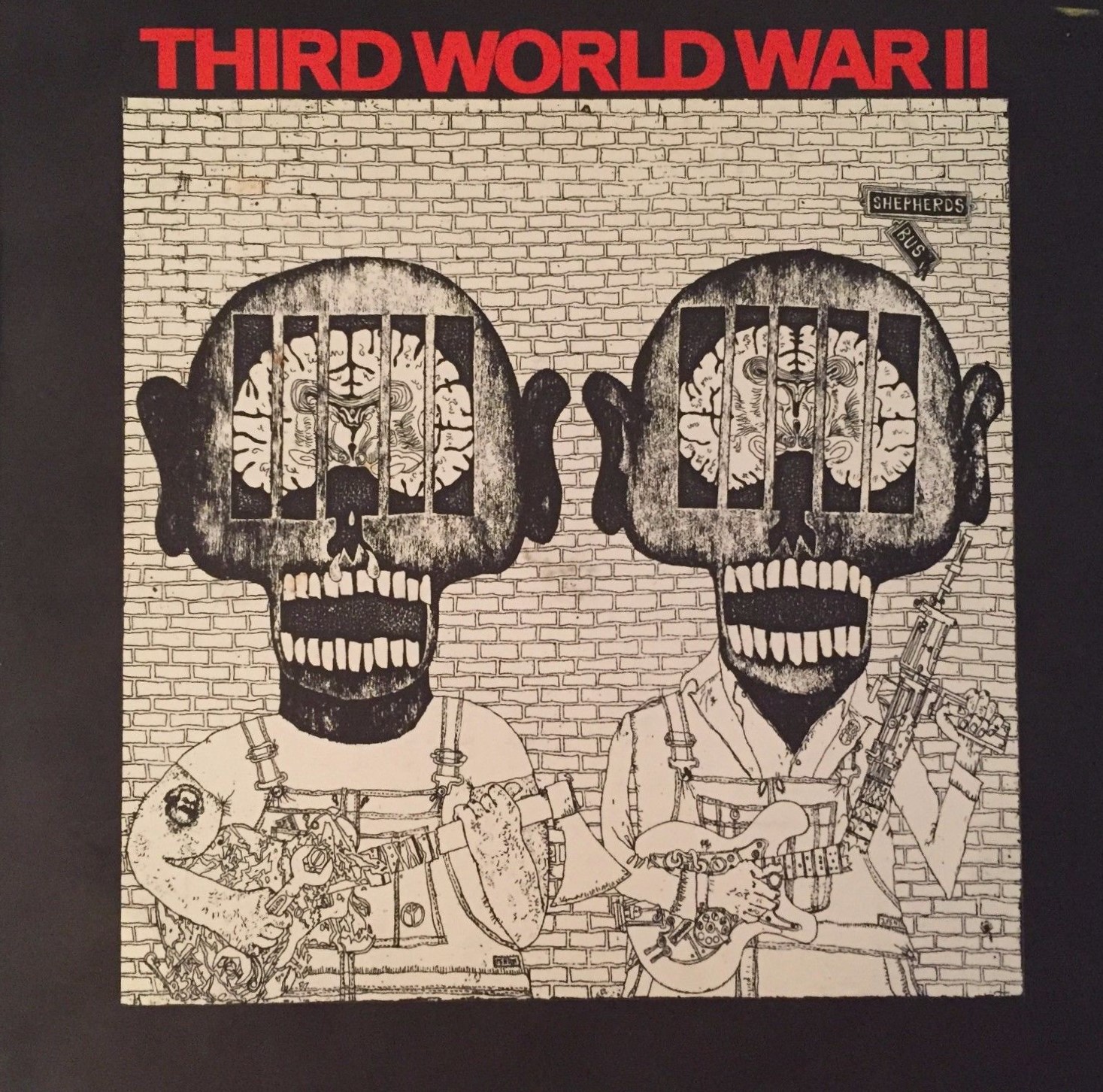
I would love to hear about some of the most memorable moments from recording your second album.
The second Third World War album was recorded at Olympic Studios in Barnes, UK, with some tracks later completed at IBC Studios in London. Unfortunately, I don’t recall many specific details about the recording process.
The band lineup for the album included myself on vocals and guitar, Jim Avery on bass, John Knightsbridge on lead guitar, John Hawken on piano, and Craig Collinge on drums.
How would you compare it to your debut?
The second album was more of a rocker compared to our debut album.
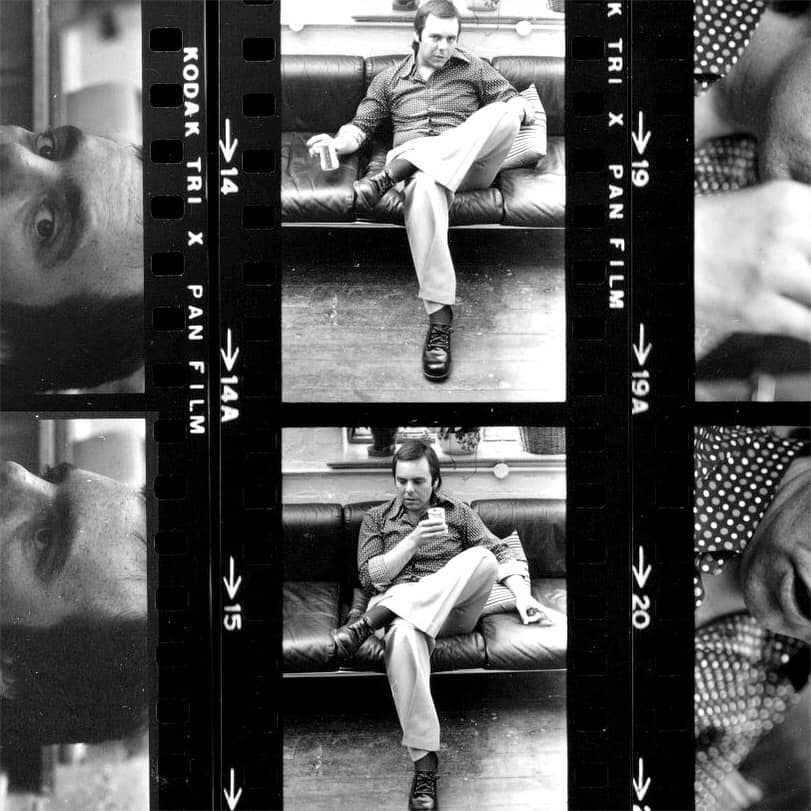
Did you get a lot of press and airplay when the records were out?
There was none that I knew of.
At the time you also released two singles, ‘A Little Bit of Urban Rock / Working Class Man’ and ‘Ascension Day / A Little Bit of Urban Rock’…
No airplay, that I was aware of.
Was there any other original track that you played live but didn’t record?
Yes, Revox recorded demos, we demoed all written songs and ideas.
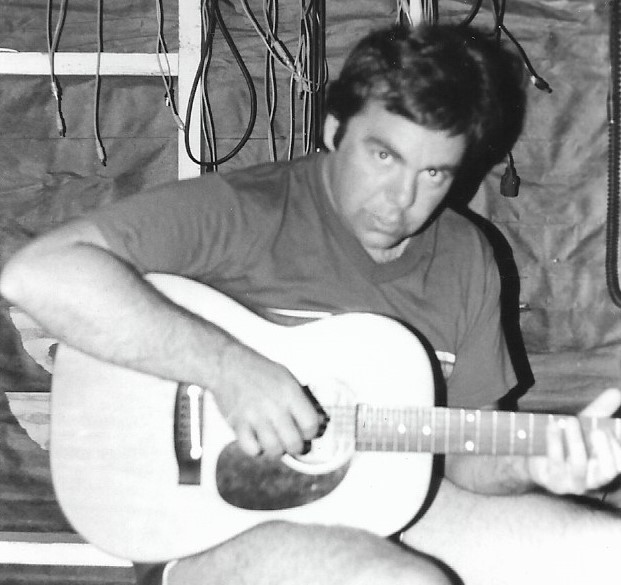
In 1975, you recorded an absolutely fantastic album, ‘Fatsticks.’ I would love it if you could share the story behind it and provide more insight on how everything came together.
Roger Cook, the singer in the band Blue Mink, was a fan of my published Schroeder songwriting. Around 1970, he recorded Helen Chappelle singing an album of my Schroeder-published songs. He told me then, “One day we will do an album together,” which in 1974/5 turned out to be ‘Fatsticks.’
On ‘Fatsticks,’ Ollie Halsall played guitar and provided backing vocals, Tony Newman played drums, Jim Avery, Herbie Flowers, and Alan Spenner played bass, and I provided vocals with Roger Cook providing backing vocals.
We had rehearsed for a few days in a pub in West Drayton, UK, before going into Morgan Studios in North London, UK to record the album. Once again, we just went for it. Influences and inspirations, as usual, were out of mind, even if there were some originally.
Two of the songs also appeared on the Harsh Reality album release. How did that come about?
Those two songs were part of the Terry Stamp – Schroeder Music Publishing Catalogue and I think were picked up by the Harsh Reality band manager from the Schroeder Music London office, ‘Tobacco Ash Sunday’ and ‘Heaven And Hell’.
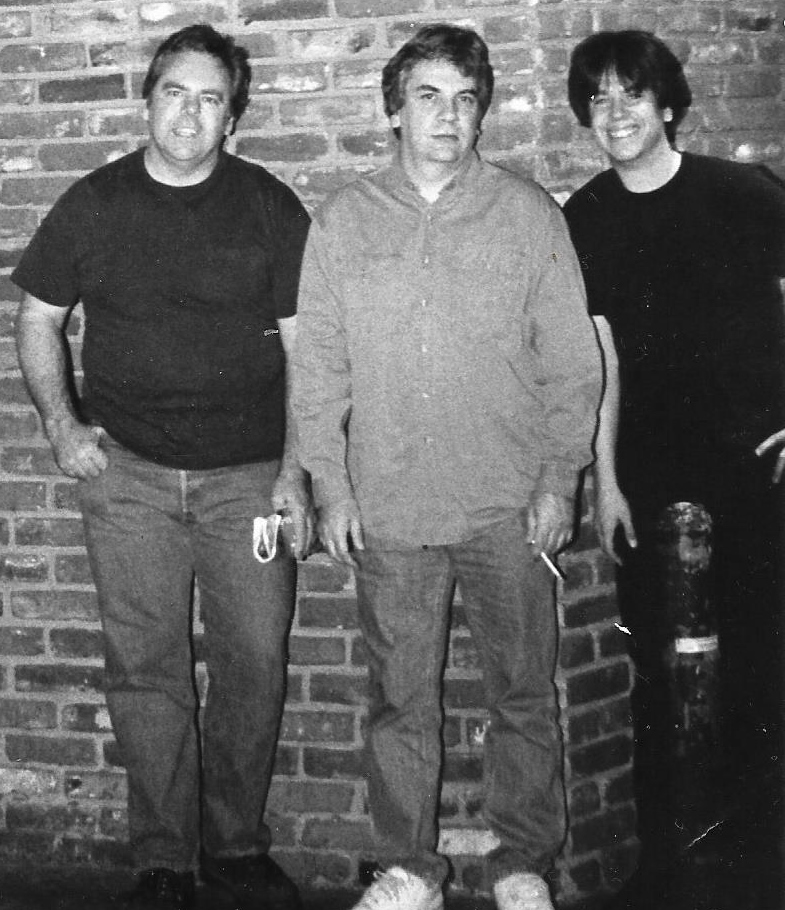
Looking back, what was the highlight of your time in the band? Which songs are you most proud of? Where and when was your most memorable gig?
I always enjoyed writing and performing. It was all a highlight for me.
The most memorable Third World War gig was one at “Bumpers” in London. By that time, Third World War was getting known about, and the place was jam-packed. We were the first band on.
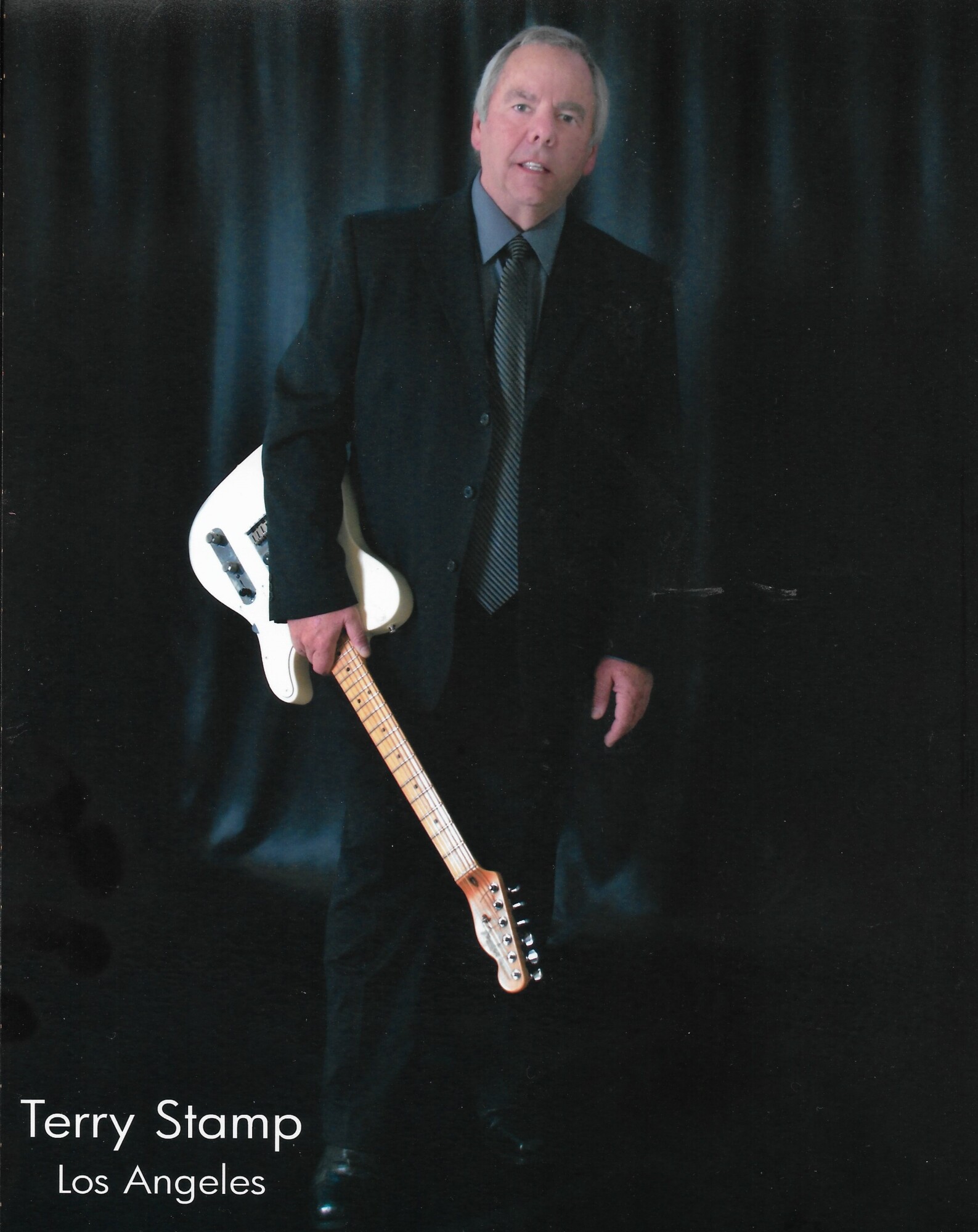
Is there any unreleased material by Third World War or related projects?
Yes, ‘Two Buckets Of Blood’ CDs 1 & 2 – 2000, feature all Third World War songs that were never finished or recorded during the Third World War days, now completed.
Terry Stamp and Jim Avery – ‘Two Buckets Of Blood (Bucket One)’.
CD tracks: ‘Introduction,’ ‘Tender Guillotine,’ ‘Lavender Hill Gunslinger Blues,’ ‘Wild Boulevard,’ ‘City Ain’t Nothing But A Cage,’ ‘Bootlace Johnnie,’ ‘Isle Of Dogs,’ ‘Working On George’s Car,’ ‘This Frozen Star,’ ‘Moondreamers,’ ‘Boot Hill Salooners,’ ‘Wastelanders’.
All compositions composed by Terry Stamp, Terry Stamp/Jim Avery – BMI.
Recording Personnel: Terry Stamp vocals and guitars.
CD Label: GSL Music, Los Angeles, California, # GSLMCD024 – 1999 – BMI.
Terry Stamp and Jim Avery – ‘Two Buckets Of Blood (Bucket Two)’.
Tracks: ‘Brickhouse Saturday Night,’ ‘Reggie Got Sore,’ ‘Smoldering Blues,’ ‘Doubledeclutching,’ ‘Traitors Gate,’ ‘Working On A Thug Life,’ ‘Howling For The Highway Home,’ ‘Two Storms And Seven Suicides,’ ‘Inveraray,’ ‘Bootlace Johnnie And The Ninety Nines,’ ‘Ninetynineville,’ ‘Washing Of The Spears’.
All compositions composed by Terry Stamp, Terry Stamp/Jim Avery – BMI.
Recording Personnel: Terry Stamp vocals and guitars.
Recorded at Jet City Studios and Sunburst Studios, Los Angeles, USA.
CD Label: GSL Music, Los Angeles, # GSLMCD025 – 2000 – BMI.
Some of these songs were also released in 2004 and 2008. Search – Terry Stamp (burningshed.com).
Are you still in touch with any members of the Third World War?
Not so much, just John Knightsbridge once in a while.
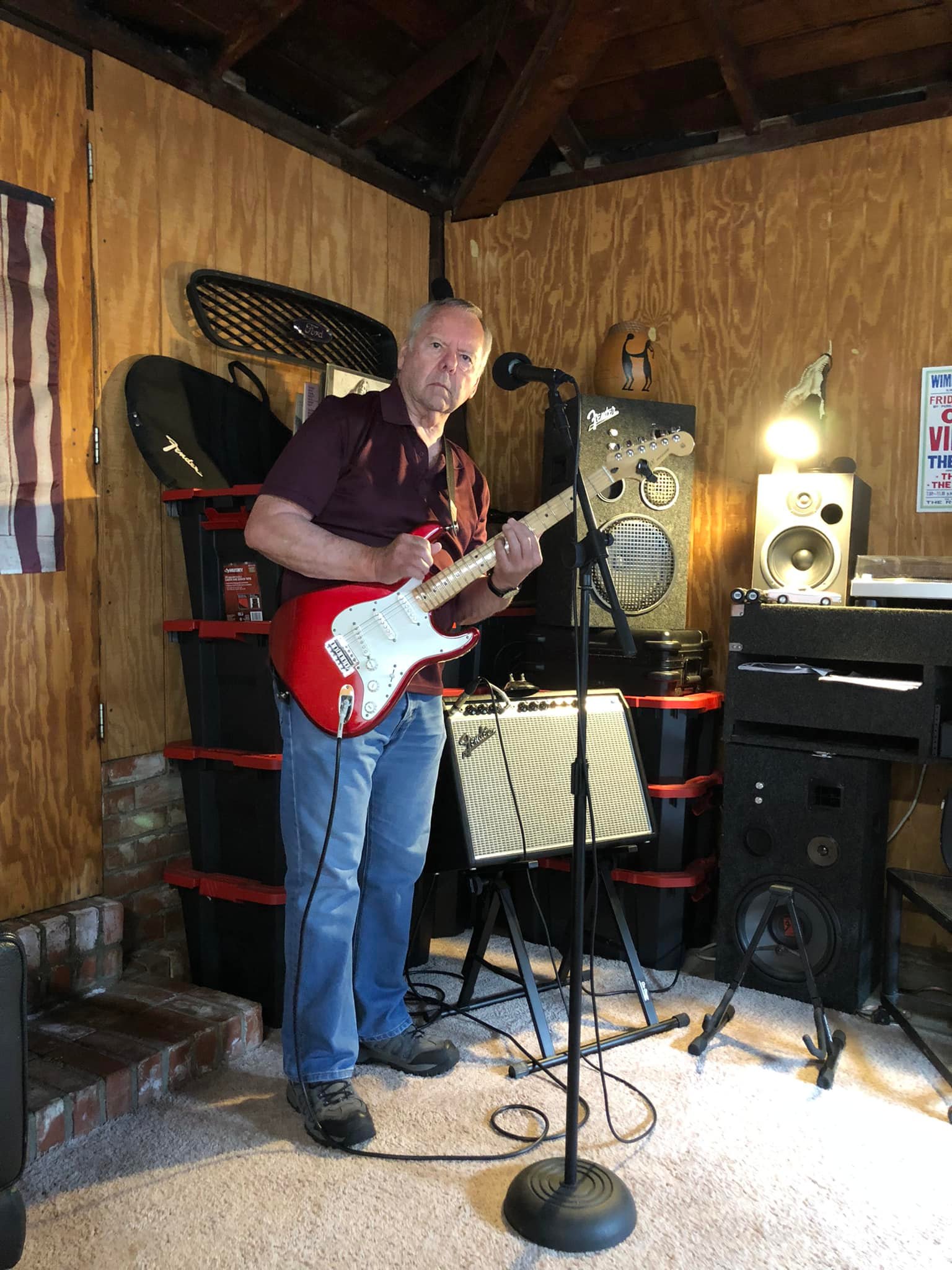
There are several more solo albums under your name, can you tell us about some that you like to work on the most?
Just Add Water Records reissued and released ‘Fatsticks’, as well as ‘Twenty Rough Rotters 1980-1989: The Bomb Shelter Tapes’. It must feel amazing to have those albums reissued and available today. Can you tell us more about ‘Twenty Rough Rotters 1980-1989: The Bomb Shelter Tapes’?
The songs on ‘Twenty Rough Rotters 1980-1989’ were recorded here in the Bomb Shelter. I used a Sony TC 350 tape recorder for all the solo tracks, which are mainly blues with slide guitar and some crazy songs. I never imagined that those tracks would be released someday as a double album. They are now released on Just Add Water Records in San Francisco, California, USA. I recorded them with no intention of having them released, but when Jason Duncan heard them, he put together the double album.
What else currently occupies your life?
I try to do nothing, but it seems like there’s always something that comes up. I am currently working on the Ford F150, specifically the front clip and water pump.
Klemen Breznikar
Headline photo: Outtakes from the album photo shoot for ‘Fatsticks’ by Terry Stamp | Photo by Gered Mankowitz
Just Add Water Records Facebook / Instagram / YouTube / Bigcartel

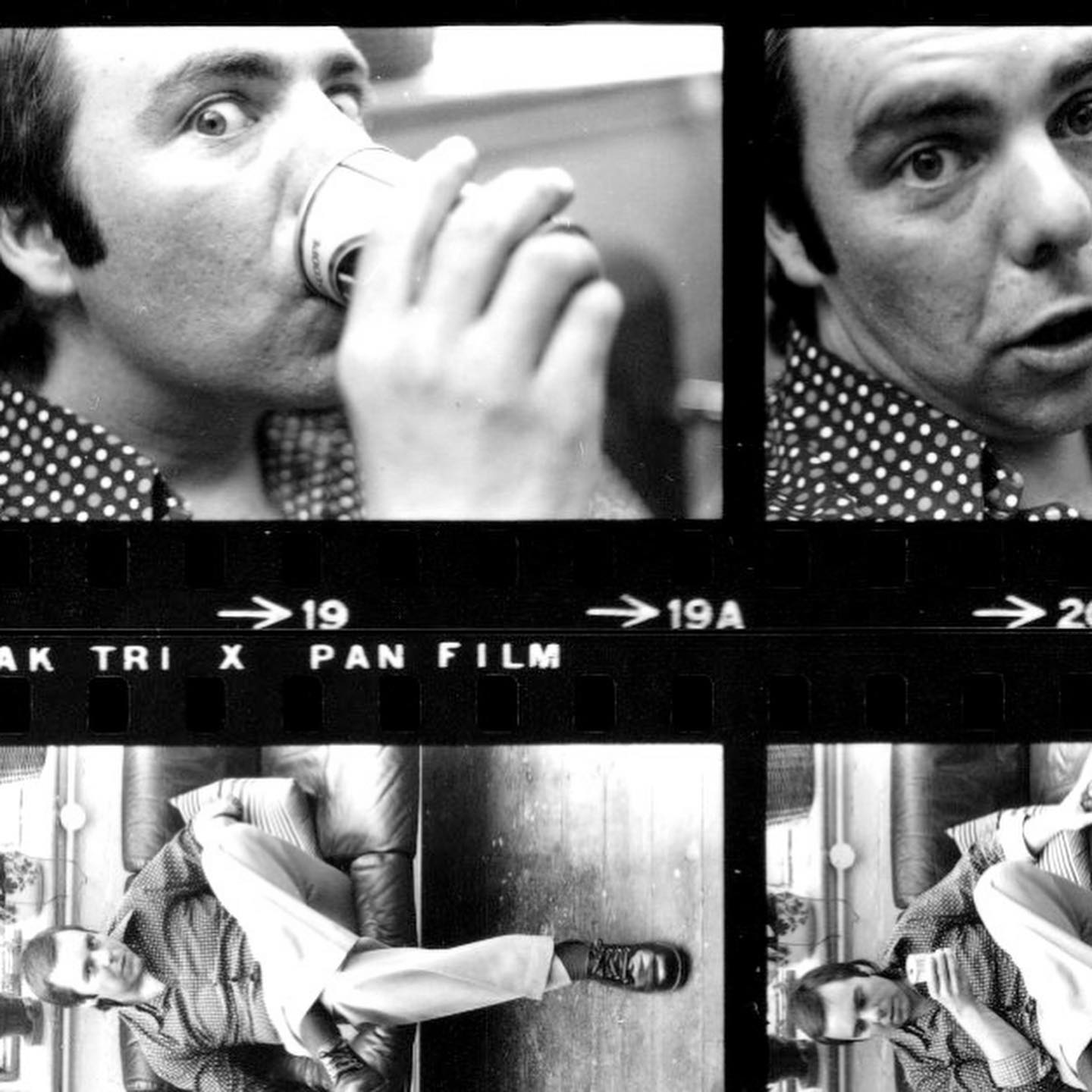
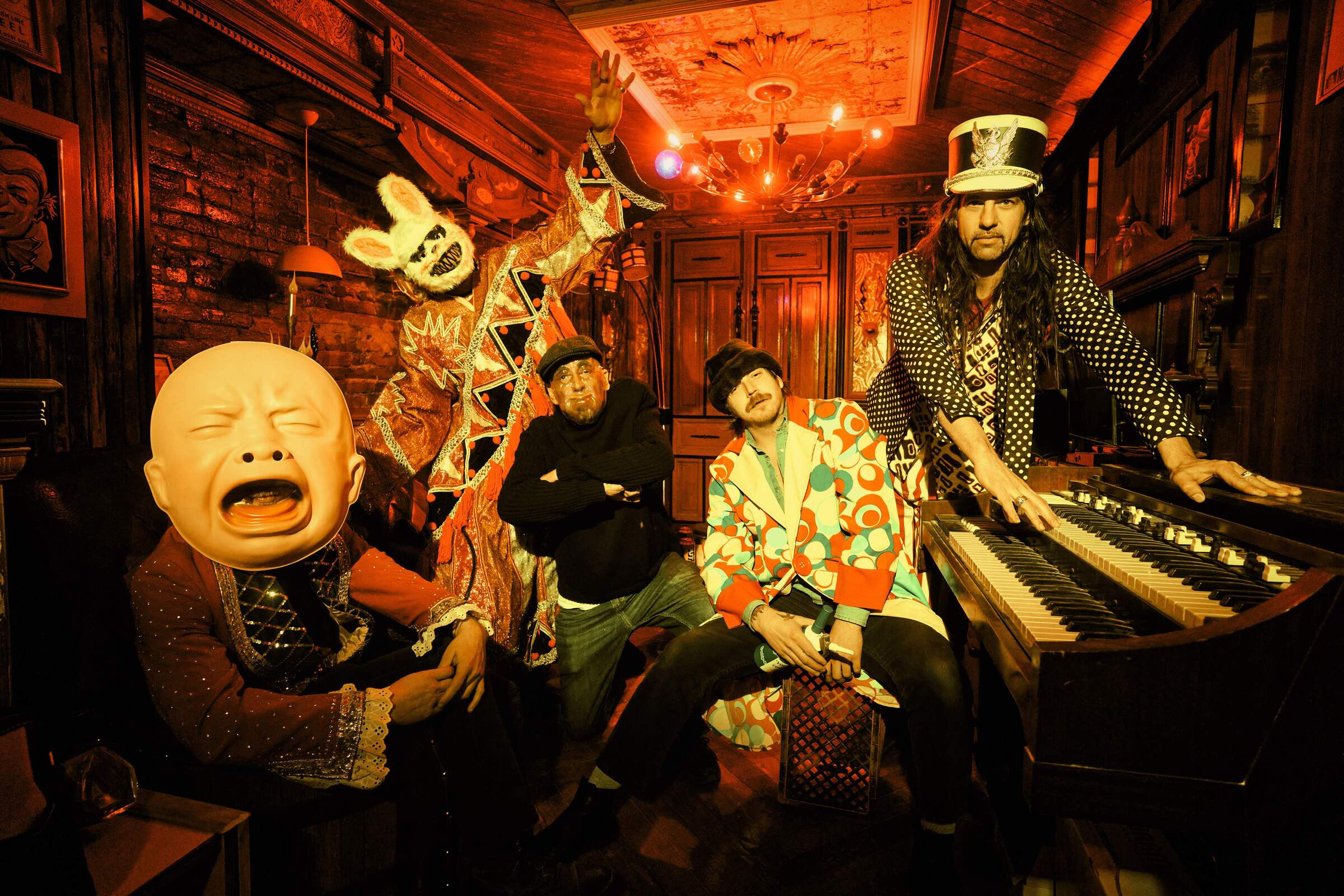
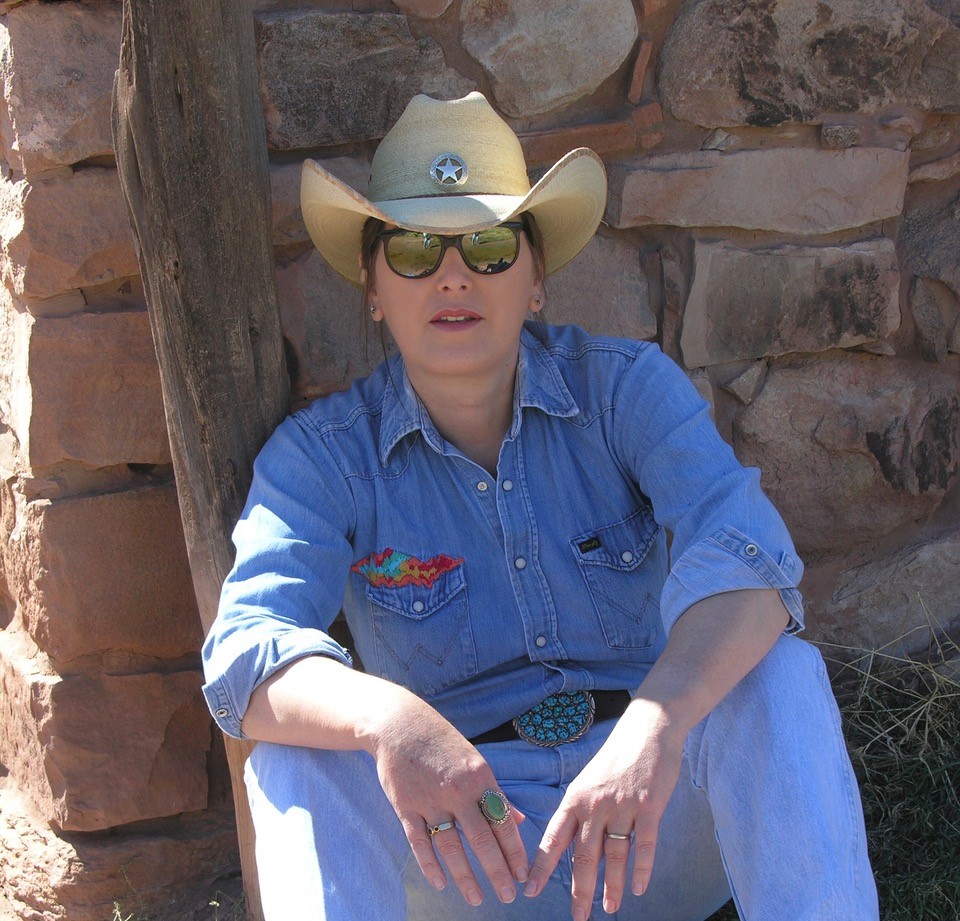
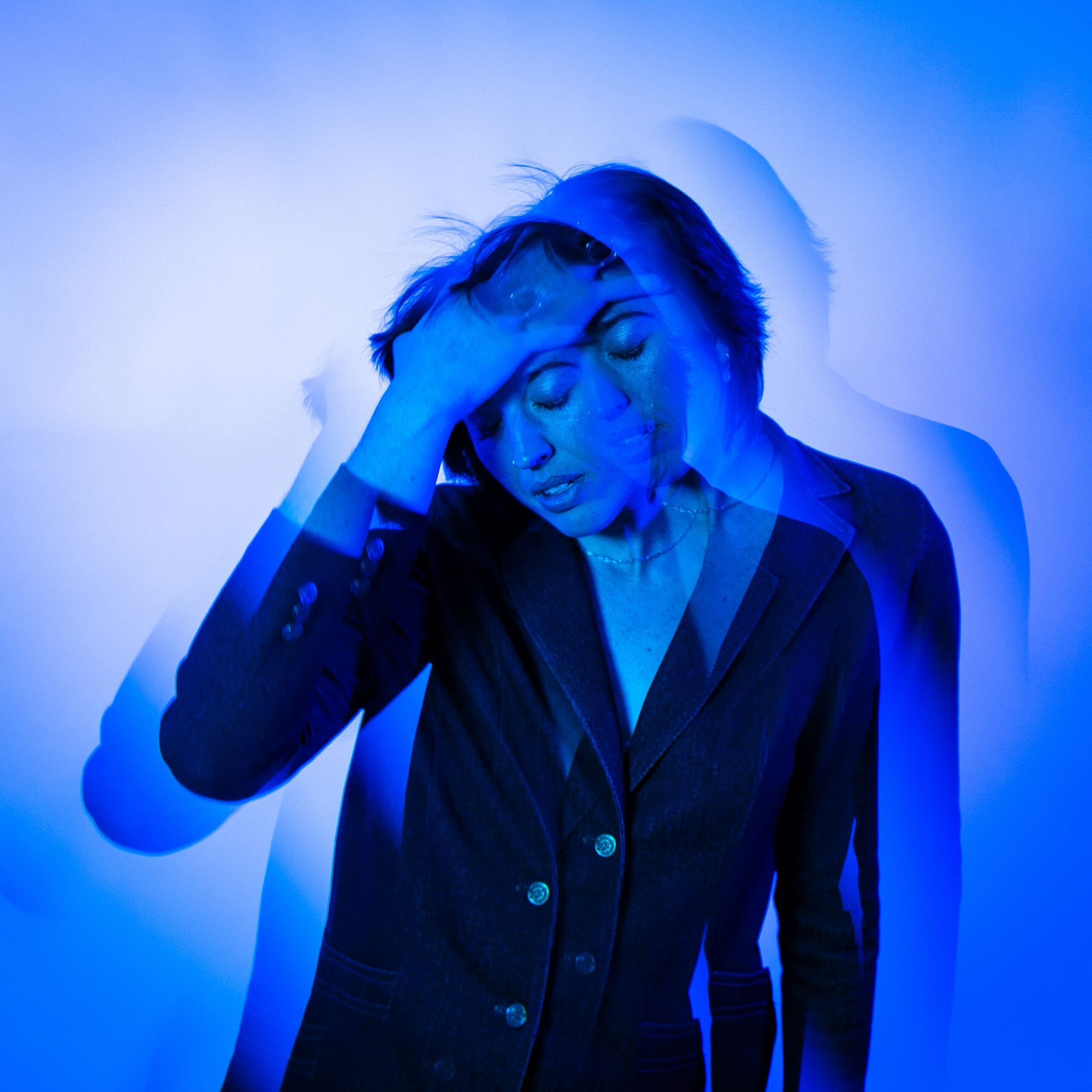
Great interview. Thanks.